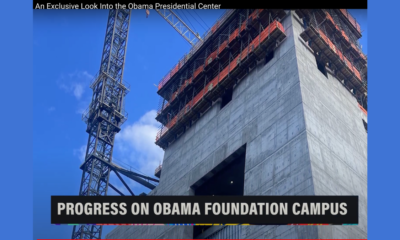Campus Safety
Colleges Struggle with Allowing Protests and Preventing Antisemitism and Intimidation
Recent events at various colleges have highlighted the delicate balance between allowing protests and preventing instances of antisemitism and intimidation.
Universities have long been bastions of free speech and activism, where students engage in robust debates on a wide array of issues. However, recent events at various colleges have highlighted the delicate balance between allowing protests and preventing instances of antisemitism and intimidation. As academic institutions grapple with these challenges, they face mounting pressure to uphold principles of free expression while fostering inclusive and respectful campus environments.
On college campuses across the country, the Israeli-Palestinian conflict often sparks impassioned debates and demonstrations. While students have the right to express their views through peaceful protests, incidents of antisemitism and intimidation have raised concerns about the boundaries of acceptable discourse and the safety of Jewish students.
Reports of antisemitic incidents, including verbal harassment, vandalism of Jewish symbols, and dissemination of hateful rhetoric, have surfaced at several colleges during or in response to protests related to the Israeli-Palestinian conflict. Such behavior not only undermines the principles of tolerance and inclusivity but also creates an atmosphere of fear and alienation within the Jewish community on campus.
“Many institutions have implemented policies and procedures to combat hate speech and discrimination.”
University administrations are faced with the challenging task of addressing incidents of antisemitism while upholding the principles of free speech and academic freedom. Many institutions have implemented policies and procedures to combat hate speech and discrimination, including educational initiatives, diversity training, and enhanced security measures. However, navigating the fine line between protecting free expression and safeguarding against harassment remains a complex and ongoing endeavor.
Amidst these challenges, colleges are striving to foster constructive dialogue and understanding among students with diverse perspectives. By facilitating open discussions, organizing interfaith events, and promoting cultural exchange programs, universities seek to bridge divides and promote mutual respect and empathy among their student body.
The rise of antisemitic incidents on college campuses underscores the need for collective action and solidarity in combating all forms of hatred and discrimination. Students, faculty, administrators, and community leaders must work together to cultivate environments where all individuals feel safe, valued, and respected, regardless of their background or beliefs.
As colleges grapple with the complexities of allowing protests while preventing antisemitism and intimidation, they are confronted with fundamental questions about the limits of free speech and the responsibility to protect marginalized communities. By fostering inclusive and respectful campus cultures, universities can uphold their commitment to academic freedom while promoting a sense of belonging and acceptance for all members of their community. In the pursuit of knowledge and understanding, it is imperative that colleges remain steadfast in their dedication to combating hate and fostering a culture of tolerance, empathy, and mutual respect.
-

 Congress1 week ago
Congress1 week agoGOP Lawmakers Clash Over Senator Johnson’s Handling of Foreign Aid Package
-

 Business1 week ago
Business1 week agoNew Federal Rules Unveiled to Crack Down on Airline ‘Junk Fees’
-

 Boeing Whistleblower3 weeks ago
Boeing Whistleblower3 weeks agoSenate Homeland Security Committee Grills Boeing Whistleblower in Testimony
-

 Jan 6 Riots3 weeks ago
Jan 6 Riots3 weeks agoSupreme Court Reviews DOJ’s Application of Law in Jan. 6 Riot Cases
-

 President2 weeks ago
President2 weeks agoTake a Look Into the Obama Presidential Center
-

 Congress2 weeks ago
Congress2 weeks agoPoll: David Trone maintains lead over Angela Alsobrooks in U.S. Senate Democratic primary
-

 Congress2 weeks ago
Congress2 weeks agoUncle Luke for Congress???
-

 Politics2 weeks ago
Politics2 weeks agoBiden Injects Humor as Trump’s Hush Money Trial Begins




